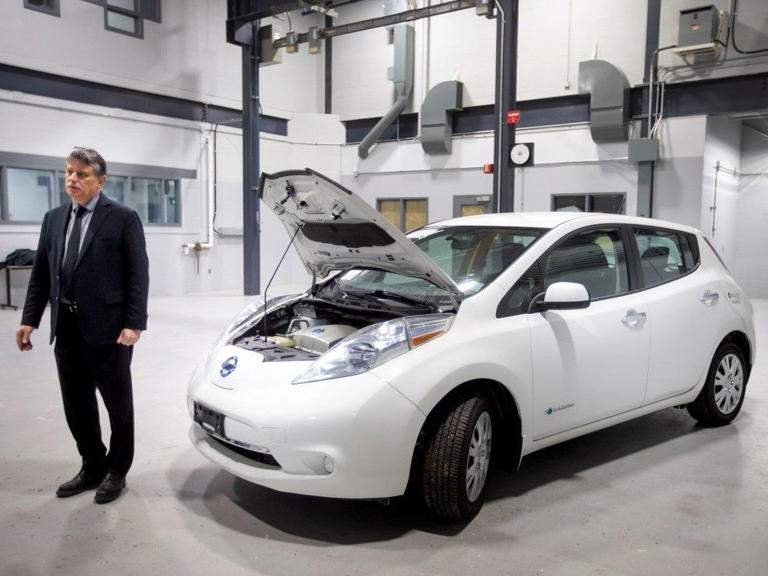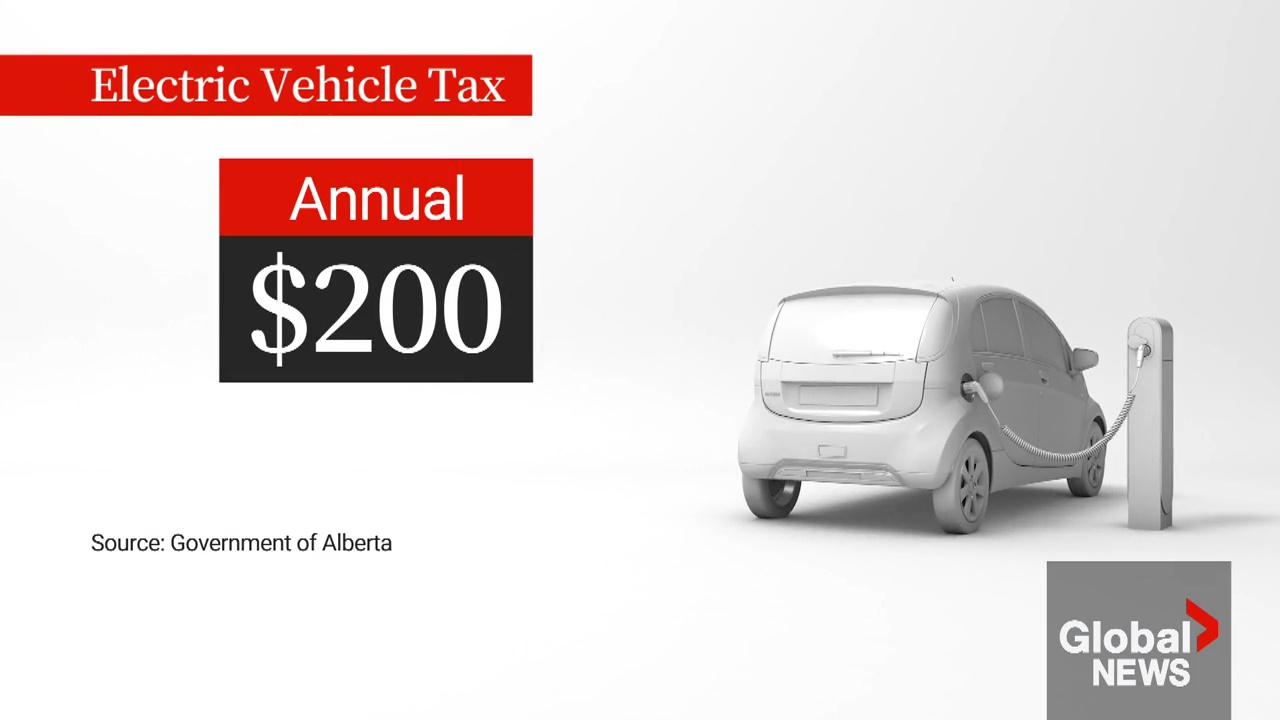Electric tops 10 per cent of vehicle sales in Canada for first time
SO DANIELLE SMITH DECIDED TO TAX THEM

Electric future. Lido Zuccato, dean, schools of engineering, apprenticeships & skilled trades at St. Clair College, is shown Feb. 15, 2023, next to a Nissan Leaf, a battery electric vehicle, as he talks about the college's new EV technician program. Ten per cent of Canadian vehicle registrations in 2023 were for electric and hybrids.
Annual registrations of zero-emission vehicles (ZEV) surpassed the 10-per-cent mark of total new registrations in Canada for the first time in 2023.
That milestone announcement comes at a time when recent reports point to more conservative future sales forecasts, as well as downward production adjustments by automakers.
Statistics Canada data released this month show ZEVs represented 10.8 per cent of the 1,714,356 new motor vehicles registered last year. That represents an increase of 49 per cent over 2022 and 115 per cent over 2021.
“Getting the first 10 per cent of the electric vehicle market is relatively easy with a good product and a market that wants the product,” said Sam Fiorani, AutoForecast Solutions’ vice-president of global vehicle forecasting.
“The next 90 per cent will be much harder to convert.
“What we’ve seen in the last few years is the tech savvy and green buyers come aboard willing to pay high prices. That market is now saturated and it’s the everyday buyer, who isn’t willing to spend the extra money, that automakers have to convince.”
Fiorani told The Windsor Star he expects several years of gradual, steady growth of EV sales until the end of the decade when the new products should have a firmer footing in the market.
The U.S. market is seeing a similar retrenching, but it also passed the 10-per-cent mark of all new vehicle sales — and one million vehicles — for the first time last year.
Zero-emission vehicles, which include battery electric, plug-in hybrids and hybrid models, continue to nibble away at the market share of internal-combustion engines.
Gas-powered vehicle registrations dipped 4.5 per cent last year to 77 per cent of overall market share in Canada. That’s down 13.6 per cent since 2021.
“We’re not going to see as dramatic numbers in EV sales as we’ve seen in the last few years,” Fiorani said.
“The industry, the buyers and the charging structure is just not ready for faster growth. It’s going to take five to 10 years to get there.”
The fastest growth of the EV market is taking place in the three most populated and urbanized provinces — Ontario, Quebec and British Columbia.
ZEVs represented 20 per cent of all new registrations in B.C. while it was 19 per cent in Quebec and seven per cent in Ontario.
Among the ZEV mix of options, plug-in hybrids (81 per cent) and hybrids (67 per cent) showed the fastest growth year over year. Full-battery electric sales rose 42 per cent.
Internal-combustion engine registrations increased by seven per cent.
“Manufacturers need more hybridization in their vehicle offerings,” Fiorani said. “I expect hybrids to continue to increase their share of the market.”
Fiorani said AutoForecast Solutions has always been very conservative on predicting the pace and directness of what is the most radical transformation of the auto industry in over a century.
“They should have seen that hybrids would be the intermediate step,” said Fiorani, who added gas-powered engines will continue to be a key component of the industry for likely another 20 years.
“Now they’re going back and hybridizing more of their internal combustion products on the market.”
Related
Fiorani said 2024 will be a pivotal year for automakers, especially with so many new electric vehicles hitting the market. However, that will be good news for consumers from the standpoints of choice and pricing.
“With all the new products coming on the market, there’ll be real downward pressure on pricing,” Fiorani said. “It’s fair to say, there’ll be too many models for too few buyers and that will equate to lower prices.
“The competition will be intense in 2024 and 2025 and we could see a weeding out of some of the new players. It’s going to take to the end of the decade for the market to normalize and prices and inventory to balance out.”
Twitter.com/windstarwaddell

No comments:
Post a Comment